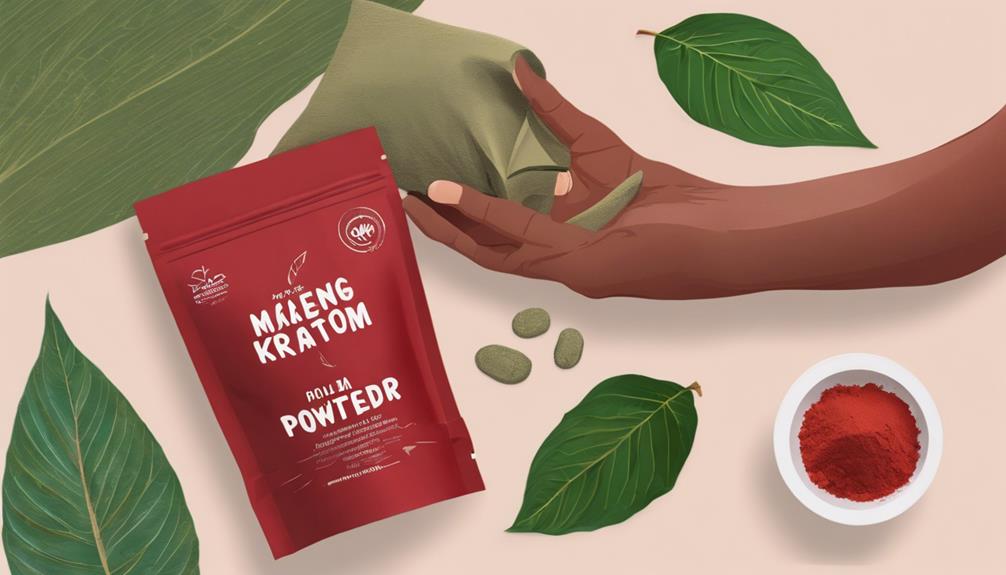Deprecated: mb_convert_encoding(): Handling HTML entities via mbstring is deprecated; use htmlspecialchars, htmlentities, or mb_encode_numericentity/mb_decode_numericentity instead in /home/users/kratomfiles/www/kratomfiles.com/wp-content/plugins/quick-adsense-reloaded/includes/template-functions.php on line 3552
Kratom (Mitragyna speciosa) is a tropical evergreen tree native to Southeast Asia, belonging to the coffee family. Traditionally used in medicine for pain relief, energy enhancement, and mood improvement, kratom contains alkaloids, primarily mitragynine and 7-hydroxymitragynine. These compounds interact with opioid receptors in the brain, producing effects similar to opioids but with milder and more stimulating properties.
Kratom is typically consumed as a tea, chewed raw, or taken in capsule or powder form. In recent years, kratom has gained popularity in the United States as an alternative to prescription opioids for managing chronic pain and opioid withdrawal symptoms. Proponents argue for its potential as a natural remedy, while critics express concerns about safety and addiction risks.
The legal status of kratom varies across states, with some banning its sale and possession, while others impose age restrictions or labeling requirements. In Colorado, the regulation of kratom remains a subject of ongoing debate and legislative efforts.
Key Takeaways
- Kratom is a tropical tree native to Southeast Asia, known for its medicinal and recreational properties.
- Kratom was legal in Colorado until 2017, when the state banned its sale to anyone under 18.
- Currently, kratom is legal for individuals over 18 in Colorado, but there are ongoing debates about its safety and potential regulation.
- The debate surrounding kratom legality in Colorado revolves around concerns about its addictive potential and lack of regulation.
- Potential future changes in kratom legislation in Colorado may include stricter regulations or a complete ban on its sale and use.
Kratom Legality in Colorado: A Brief History
Initial Concerns and Review
In 2016, the Colorado Department of Public Health and Environment (CDPHE) considered adding kratom to the list of controlled substances, citing concerns about its potential for abuse and dependence. However, after receiving public feedback and conducting a thorough review of the available scientific evidence, the CDPHE decided not to pursue the scheduling of kratom at that time.
Denver’s Public Health Ordinance
In 2017, the city of Denver took a different approach by passing a public health ordinance that prohibited the sale of kratom to individuals under the age of 18. This measure was intended to prevent minors from accessing kratom products and to raise awareness about the potential risks associated with their use.
State-Wide Regulation Efforts
Subsequently, in 2019, the Colorado Legislature introduced a bill that sought to regulate the labeling and testing of kratom products sold in the state. The proposed legislation aimed to ensure that kratom products were accurately labeled and free from contaminants, providing consumers with greater transparency and safety assurances.
The Current Legal Status of Kratom in Colorado

As of 2021, kratom remains legal for individuals over the age of 18 to purchase and possess in Colorado. There are no statewide restrictions on the sale or use of kratom products, and they are widely available in various retail outlets, including smoke shops, convenience stores, and online vendors. However, the city of Denver’s ordinance prohibiting the sale of kratom to minors under the age of 18 still stands, reflecting local efforts to address concerns about youth access and public health.
While kratom is not classified as a controlled substance in Colorado, it is important for consumers to exercise caution and discretion when purchasing and using kratom products. The Food and Drug Administration (FDA) has issued warnings about the potential risks associated with kratom consumption, including adverse effects such as seizures, liver damage, and withdrawal symptoms. Additionally, there have been reports of kratom products being adulterated with other substances or contaminated with pathogens, highlighting the need for quality control measures and regulatory oversight.
The Debate Surrounding Kratom Legality in Colorado
| Aspect | Information |
|---|---|
| Current Status | Kratom is legal in Colorado for individuals over 18 years old. |
| Legislation | There have been attempts to ban kratom in Colorado, but they have not been successful. |
| Advocacy | Advocates argue that kratom has potential medical benefits and should remain legal. |
| Concerns | Opponents raise concerns about the potential for abuse and adverse health effects of kratom. |
The debate surrounding kratom legality in Colorado is multifaceted and involves various stakeholders with differing perspectives on the benefits and risks of kratom use. Proponents of kratom argue that it is a natural and effective alternative to prescription opioids for managing pain and opioid withdrawal symptoms. They emphasize the long history of traditional use of kratom in Southeast Asia and advocate for continued access to kratom products for those who rely on them for their well-being.
On the other hand, opponents of kratom raise concerns about its safety and potential for abuse, citing reports of adverse effects and calls for emergency medical assistance related to kratom consumption. They also point to the lack of regulation and quality control in the kratom industry, highlighting the need for stricter oversight to ensure consumer safety. Additionally, some opponents express apprehension about the marketing and promotion of kratom products as dietary supplements, which are not subject to the same rigorous testing and approval process as pharmaceutical drugs.
Potential Future Changes in Kratom Legislation in Colorado
The future of kratom legislation in Colorado is uncertain, as ongoing discussions and developments continue to shape the regulatory landscape for this herbal supplement. There is potential for additional measures to be introduced at the state or local level to address concerns related to kratom use and distribution. These measures could include age restrictions, labeling requirements, product testing mandates, or even consideration of scheduling kratom as a controlled substance.
At the same time, there is also an opportunity for stakeholders to collaborate on developing responsible guidelines for the sale and use of kratom products that prioritize consumer safety and public health. This could involve establishing industry standards for product quality and purity, providing education and outreach about safe kratom use, and promoting research into the potential therapeutic applications of kratom. By engaging in constructive dialogue and evidence-based policymaking, Colorado has the potential to set a precedent for balanced and informed regulation of kratom.
The Impact of Kratom Legality on Colorado Residents

Uncertainty and Apprehension Among Consumers
On the other hand, concerns about the safety and regulation of kratom products can create uncertainty and apprehension among consumers. Without clear guidelines and oversight, individuals may be exposed to potential risks associated with adulterated or contaminated kratom products.
Risks of Adulterated or Contaminated Products
The lack of regulation and oversight can lead to the distribution of unsafe kratom products, putting consumers at risk. This can result in serious health consequences, including adverse reactions and interactions with other medications.
Conflicting Information and Misinformation
Furthermore, conflicting information about kratom from various sources can contribute to confusion and misinformation about its effects and appropriate use. This can lead to misuse or abuse of the substance, which can have negative consequences for users.
Navigating the Complexities of Kratom Legality in Colorado
The landscape of kratom legality in Colorado is characterized by a complex interplay of scientific evidence, public health considerations, regulatory frameworks, and individual experiences. As discussions about kratom continue to evolve, it is essential to approach this issue with nuance and open-mindedness. By engaging in informed dialogue and collaborative decision-making, policymakers can work towards solutions that balance access to kratom with measures to protect consumer safety.
Furthermore, it is crucial for individuals to stay informed about the legal status of kratom in their area and to exercise caution when purchasing and using kratom products. Seeking out reputable vendors who prioritize quality control and transparency can help mitigate potential risks associated with kratom consumption. Ultimately, navigating the complexities of kratom legality in Colorado requires a thoughtful and inclusive approach that takes into account the diverse perspectives and needs of all stakeholders involved.
If you’re curious about the legal status of kratom in Colorado, you may also be interested in learning about the potential medical uses of kratom. According to a recent article on Kratom Files, kratom has been used for various medical purposes, including pain relief and managing opioid withdrawal symptoms. To read more about the medical uses of kratom, check out this article.
FAQs
What is kratom?
Kratom is a tropical tree native to Southeast Asia, known for its leaves that contain compounds with psychotropic (mind-altering) effects.
Is kratom legal in Colorado?
As of September 2021, kratom is legal for use and purchase by individuals over the age of 18 in the state of Colorado.
Is kratom regulated in Colorado?
Kratom is not currently regulated by the state of Colorado, but it is legal for purchase and use by individuals over the age of 18.
Where can I buy kratom in Colorado?
Kratom can be purchased from various smoke shops, specialty stores, and online retailers in Colorado.
Is it legal to sell kratom in Colorado?
Yes, it is legal to sell kratom in Colorado as long as the seller complies with the age restriction of 18 and follows any relevant local regulations.
Are there any restrictions on kratom in Colorado?
As of September 2021, there are no specific restrictions on the sale or use of kratom in Colorado. However, it is important to stay informed about any potential changes in regulations.










